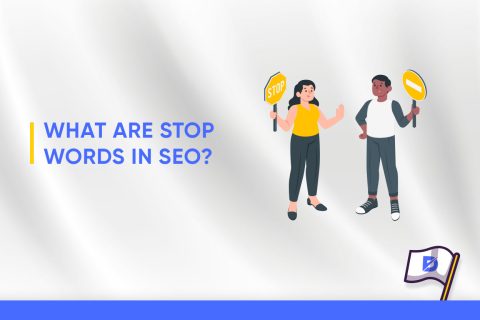There is no doubt that collaboration and – to a certain extent – interdisciplinarity are among the key requirements for almost any professional endeavor. Being part of a team, getting some support from business partners, consulting with experts who are working within related sectors are a few examples. Those ‘rules’ are also valid for people involved in SEO (Search Engine Optimization). Alright, but what happens for those of us who, although perfectly competent, feel like lone wolves rather than social butterflies? Not only that: indeed, some others may be looking for more autonomy and/or willing to spare their income only for themselves. Needless to say that those are also quite legitimate expectations. Here, we present you with a DIY SEO guide.
So by now, you should be seeing the 3 magical words coming: do it yourself, abbreviated as DIY. Even better, we will now introduce a simple guide to do SEO yourself. Solitary SEO aficionados can rejoice.
When doing SEO yourself, you should keep in mind that you have all the work. So, here are the things you should consider:
- Define your target audience.
This part is not only for SEO but for all marketing processes. Defining your target audience is the key to success and the first step to be taken.
- Conduct a keyword research.
A good keyword research can let you build up an SEO strategy that you can use for a long time. If you have defined your target audience, check out your competitors and see the keywords they’re using.
- Make everything SEO-friendly.
From on-page SEO to off-page, you will have to optimize everything SEO-friendly.
- Always keep an eye on SEO.
When you make all optimizations, it doesn’t mean SEO is over. SEO is never over. You will need to keep an eye on your competitors, search engine updates and algorithms. Try to learn new things and develop yourself and keep up with the others.

Visitors Always Come First
This simply means that before anything else, you should plan your activity according to your current or future website visitors. They are the target audience that you will be working for. So we can already summarize the whole process as: do your own SEO for others. Obviously, it seems important to get started by determining what those ‘others’ or audiences look like. One of the most recommended methods is to build buyer personas or ideal customer profiles.
These are fictional characters that are supposed to represent your client. They usually look like elaborate identification documents and include the demographic details, behavioral tendencies, goals, and desires of your ideal customers. You may, of course, add any other feature that seems relevant to you regarding your business type. More generally speaking, and no matter what type of tool you choose, a good DIY SEO strategy should always start with a study of the individuals that you intend to reach.

Go for Keyword Hunting
Whenever someone mentions SEO, the first thing coming to mind is keyword. Accurate association because, indeed, keywords are among the major components of SEO, either in DIY style or else. Once you have determined your audience, it’s time to look for the keywords that the audience in question is interested in. Your potential and/or actual customers display some specific preferences, right? So they probably also make use of specific terms to express and search for those preferences. Those are the keywords that you should identify and incorporate in your content.
Start with seed (main) keywords. Those will lead you to more refined keywords and groups of keywords. Look for the words that best describe your niche and/or product brand. They should be those that almost anyone would intuitively use while searching for those activities or products on the Internet. If you are selling inflatable mugs, high chance that keywords such as inflatable, mug, picnic supplies, easy to transport will be relevant. Struggling with finding seed keywords? Google Search Console and other similar tools may help you generate a whole list of suitable words.
Once you are done with seed keywords, you can keep using specific tools to refine your SEO vocabulary. Keywords Explorer by Ahrefs is one of them. Those tools allow you to enter your basic terms and end up with more detailed possibilities. For example, if you typed inflatable mugs in the search area, you can get many related formulas like ‘how to use inflatable mugs’ or ‘are inflatable mugs safe.’ Keywords Explorer also gives an idea about challenges related to ranking and traffic. You are not limited to that brand only, though. Many other keyword tools are available for free. However, make sure that you choose one that gives some essential information (search rate, keyword difficulty, etc.).

Design SEO-Friendly Pages
Page optimization is another crucial aspect. Even if it can seem more complicated for those of you involved in do-it-yourself SEO, there is actually nothing much to be afraid of. It’s all about a minimum of organization. In fact, you can picture SEO as an entire universe on its own. So grabbing the right keywords is good, but dispatching those words (and/or sentences) to the right spots is better. Instead of treating them as isolated elements, you should blend them harmoniously within your entire site. Insert them in your titles, tags, and descriptions whenever possible. Make them appear within your texts and blogs several times, without abusing though. Indeed, you don’t want your website visitors to feel harassed or infantilized. You should aim for an ideal balance.
Once again, we suggest you check resources such as Search Engine Journal (SEJ). Those are always of great help for anyone dealing with DIY. For instance, SEJ has a rich collection of guidelines that redirect the readers to various SEO tools. Take a look at those related to page optimization. They can allow you to examine your website and detect any possible improvements to be made. Their most noticeable advantage is their speed: they can make you fix your page issues almost instantly.
A little reminder here: page optimization is surely not only about keywords and keyphrases. So no need to become obsessed with them more than necessary. Indeed, the final goal is to get a whole product (your website) that has to be both coherent and appealing from all angles. That’s why you must also make smart use of other kinds of material, such as audio, videos, stickers, graphics, banners, etc. No matter the form, what really makes the difference is always publishing optimized content.

Be a Good Observer
Yes, we know that your inquiry is about how to do SEO yourself. But going solo is not a synonym of totally ignoring others. As a DIY SEO creator, you still have to keep an attentive eye on your competitors. Once again, keywords will be your best friends here: for each of them, spot the related competitors. Try to understand the usage that they make of those keywords, as well as their global tendencies for page design and organization. There must be precise reasons explaining their high rankings in search engine results, right?
WebCEO is one of the currently popular brands that offer many SEO tools also when it comes to analyzing competitors’ strategies, either organic or paid ones. On the other hand, you should definitely resist the temptation to become a copycat. Your competitors can certainly inspire you or even teach you a few essential tricks. However, you shouldn’t allow them to annihilate your originality. Plus, don’t forget that your main efforts are aimed at your customers. If you want them to remain loyal to you, then you have to overtake your competitors with your own creativity sooner or later.
DIY SEO in a Nutshell
No, SEO is not dead, despite the rumors. It rather keeps evolving into different directions, and DIY is just one of them. Now you have the opportunity to become your own SEO agency and thus save plenty of money as much as time. Moreover, it is not even as laborious as it may seem at first sight. As long as you define your target audience with precision, remain aware of your competitors, and choose the right keywords, possibilities become endless. In addition to those, well-thought content and page design will help tremendously. Get ready for success.
Frequently Asked Questions About
Yes. You may find online classes on various platforms, such as Udemy. Don’t forget detailed guide-blogs: WordStream, Search Engine Journal, etc. can give you further details about the topic. If you are old-school, you can deepen your knowledge through books too. There are various options, from SEO For Dummies to more advanced resources. Check online reviews to get an overall idea about the content, but also the quality.
SEM is a whole other topic, even though it is closely related to SEO.
Well, everyone probably uses both at some point. The term internal links refers to the links that one finds within the same domain. As for the external links, those don’t necessarily belong to the same domain.
Absolutely. Solo processes can perfectly lead to success too, but you will still need some collaboration. One of the most effective ways is to get backlinks from other authoritative websites. No need to aim at zillions of them. Having 1 or 2 authoritative brands redirecting their visitors to your site is better than getting links from a dozen of amateurs. Don’t forget that Google will pay attention to the number of backlinks that you get. It will also take into account the reliability of the sources that provide those links.
Yes. Relevancy is a main component of reliability. If search engines and visitors are looking for something specific and then find it on your site without any difficulty, this will certainly contribute to your reliability. And in the long run, your reliability rate will have a cumulative effect on your authority.





No comments to show.